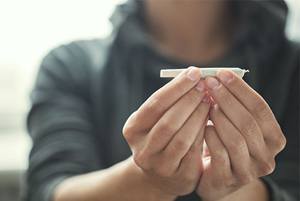How THC and CBD are Used to Treat Substance Abuse and Withdrawal
3/17/2018 7:05 AM

How THC and CBD is Used to Treat Substance Abuse and Withdrawal
In recent years, CBD has gained acceptance as a treatment for a large number of different conditions and illnesses. One of these conditions is withdrawal following substance abuse. Both THC and CBD have proven to be useful in treating withdrawal symptoms related to numerous drugs such as alcohol, opiates, and benzodiazepines (anti-anxiety drugs like lorazepam), just to name a few.
CBD is especially effective in treating withdrawal symptoms because of its anti-anxiety, anti-depressant, anti-psychotic, and pain relieving effects. CBD has not only shown to be effective during the withdrawal phase, but during other phases of addiction and substance abuse as well. CBD can even be helpful during the intoxication/active phase of an addiction, as it can decrease the euphoric sensation produced by opiates, rewire the reward process in the brain (upon ingestion of the drug), and thus reduce the attractiveness of the substance, and its potential for addiction. CBD has also shown promise as a post-addiction treatment in the prevention of relapses. CBD’s physical and psychological effects reduce the desire of recovering addicts to seek out any other substance. It is worth noting that studies on treating withdrawal with marijuana products have concluded that THC and CBD in combination are a much more effective treatment option than just one or the other.
As the opioid epidemic continues to unfold across Canada and the United States, rehabilitation practitioners are turning to unconventional treatment methods such as cannabis. According to an ABC15 report from last June, Blue Door Therapeutics, a Scottsdale Arizona rehabilitation clinic, is using marijuana to treat people with painkiller (opiate) addictions. Treatment with THC capsules has been successful in helping addicts to wean off of prescription pain pills like Oxycontin. In these patients, marijuana has been successful in mitigating withdrawal symptoms like headaches, nausea, muscle pain, depression, and anxiety. Moreover, because marijuana is not physically addictive, the treatment is not causing patients to replace one addiction with another, but is helping them reach a state of comfortable sobriety.
THC and CBD have also been shown to be effective in the treatment of alcohol withdrawal. Withdrawal symptoms set in after the effects of the last drink have worn off and include depression, anxiety, irritability, tremors, heart palpitations, and extreme fatigue. The main way in which CBD treats withdrawal is by stimulating CB1 receptors in the body and brain, resulting in a rewarding feeling of satisfaction. The strength of this rewarding stimulation can be amplified by taking both CBD and THC. This stimulation eliminates cravings for alcohol, and significantly reduces that possibility of relapse.







